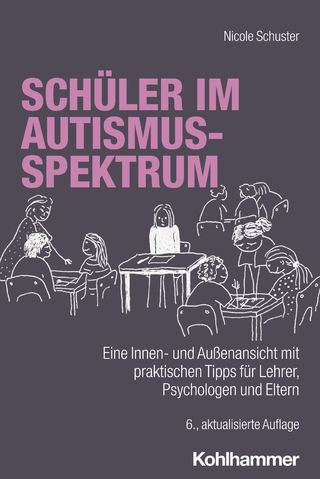
LooseLeaf for Understanding Psychology
McGraw-Hill Education (Verlag)
978-1-259-73736-7 (ISBN)
- Titel ist leider vergriffen;
keine Neuauflage - Artikel merken
Using a revolutionary revision process, Understanding Psychology is a fully integrated learning system that brings the “Students First” goal to a new level. With the adaptive learning program, SmartBook™, every student has a unique experience personalized to their needs.
The new edition has continued to use the “HeatMap” technology to advise the revision. Systematic and precise feedback from thousands of students was anonymously collected using LearnSmart™. Because virtually every paragraph in the previous edition is tied to several questions students answer in LearnSmart, the author was able to see where students struggled most…the “hot spots”…and in turn refine and update these areas to be more clear, more concise, and more impactful.
The 13th edition continues with Feldman's accessible pedagogy and hallmark research, as well as his modules-within-chapters format that is both manageable for students and allows every professor the flexibility to assign and cover what they want.
Bob Feldman still remembers those moments of being overwhelmed when he started college at Wesleyan University. I wondered whether I was up to the challenges that faced me, he recalls, andalthough I never would have admitted it at the timeI really had no idea what it took to be successful at college. That experience, along with his encounters with many students during his own teaching career, led to a life-long interest in helping students navigate the critical transition that they face at the start of their own college careers. Professor Feldman, who went on to receive a doctorate in psychology from the University of WisconsinMadison, is now Deputy Chancellor and Professor of Psychological and Brain Sciences at the University of Massachusetts Amherst. He is founding director of POWER Up for Student Success, the first-year experience course for incoming students. Professor Feldmans proudest professional accomplishment is winning the College Outstanding Teaching Award at UMass. He also has been named a Hewlett Teaching Fellow and was Senior Online Instruction Fellow. He has taught courses at Mount Holyoke College, Wesleyan University, and Virginia Commonwealth University. Professor Feldman is a Fellow of the American Psychological Association, the Association for Psychological Science, and the American Association for the Advancement of Science. He is a winner of a Fulbright Senior Research Scholar and Lecturer award and has written over 200 scientific articles, book chapters, and books. His books, some of which have been translated into Spanish, French, Portuguese, Dutch, Japanese, and Chinese, include Improving the First Year of College: Research and Practice; Understanding Psychology, 12/e; and Development Across the Life Span, 7/e. His research interests encompass the study of honesty and truthfulness in everyday life, development of nonverbal behavior in children, and the social psychology of education. His research has been supported by grants from the National Institute of Mental Health and the National Institute on Disabilities and Rehabilitation Research. With the last of his three children completing college, Professor Feldman occupies his spare time with pretty decent cooking and earnest, but admittedly unpolished, piano playing. He also loves to travel. He lives with his wife, who is an educational psychologist, in a home overlooking the Holyoke mountain range in western Massachusetts.
Chapter 1: Introduction to Psychology
MODULE 1: Psychologists at Work
MODULE 2: A Science Evolves: The Past, the Present, and the Future
MODULE 3: Psychology’s Key Issues and Controversies
Chapter 2: Psychological Research
MODULE 4: The Scientific Method
MODULE 5: Conducting Psychological Research
MODULE 6: Critical Research Issues
Chapter 3: Neuroscience and Behavior
MODULE 7: Neurons: The Basic Elements of Behavior
MODULE 8: The Nervous System and the Endocrine System: Communicating Within the Body
MODULE 9: The Brain
Chapter 4: Sensation and Perception
MODULE 10: Sensing the World Around Us
MODULE 11: Vision: Shedding Light on the Eye
MODULE 12: Hearing and the Other Senses
MODULE 13: Perceptual Organization: Constructing Our View of the World
Chapter 5: States of Consciousness
MODULE 14: Sleep and Dreams
MODULE 15: Hypnosis and Meditation
MODULE 16: Drug Use: The Highs and Lows of Consciousness
Chapter 6: Learning
MODULE 17: Classical Conditioning
MODULE 18: Operant Conditioning
MODULE 19: Cognitive Approaches to Learning
Chapter 7: Memory
MODULE 20: The Foundations of Memory
MODULE 21: Recalling Long-Term Memories
MODULE 22: Forgetting: When Memory Fails
Chapter 8: Cognition and Language
MODULE 23: Thinking and Reasoning
MODULE 24: Problem Solving
MODULE 25: Language
Chapter 9: Intelligence
MODULE 26: What Is Intelligence?
MODULE 27: Variations in Intellectual Ability
MODULE 28: Group Differences in Intelligence: Genetic and Environmental Determinants
Chapter 10: Motivation and Emotion
MODULE 29: Explaining Motivation
MODULE 30: Human Needs and Motivation: Eat, Drink, and Be Daring
MODULE 31: Understanding Emotional Experiences
Chapter 11: Sexuality and Gender
MODULE 32: Gender and Sex
MODULE 33: Understanding Human Sexual Response: The Facts of Life
MODULE 34: The Diversity of Sexual Behavior
Chapter 12: Development
MODULE 35: Nature and Nurture: The Enduring Developmental Issue
MODULE 36: Prenatal Development: Conception to Birth
MODULE 37: Infancy and Childhood
MODULE 38: Adolescence: Becoming an Adult
MODULE 39: Adulthood
Chapter 13: Personality
MODULE 40: Psychodynamic Approaches to Personality
MODULE 41: Trait, Learning, Biological and Evolutionary, and Humanistic Approaches to Personality
MODULE 42: Assessing Personality: Determining What Makes Us Distinctive
Chapter 14: Health Psychology: Stress, Coping, and Well-Being
MODULE 43: Stress and Coping
MODULE 44: Psychological Aspects of Illness and Well-Being
MODULE 45: Promoting Health and Wellness
Chapter 15: Psychological Disorders
MODULE 46: Normal Versus Abnormal: Making the Distinction
MODULE 47: The Major Psychological Disorders
MODULE 48: Psychological Disorders in Perspective
Chapter 16: Treatment of Psychological Disorders
MODULE 49: Psychotherapy: Psychodynamic, Behavioral, and Cognitive Approaches to Treatment
MODULE 50: Psychotherapy: Humanistic, Interpersonal, and Group Approaches to Treatment
MODULE 51: Biomedical Therapy: Biological Approaches to Treatment
Chapter 17: Social Psychology
MODULE 52: Attitudes and Social Cognition
MODULE 53: Social Influence and Groups
MODULE 54: Prejudice and Discrimination
MODULE 55: Positive and Negative Social Behavior
Appendix: Going by the Numbers: Statistics in Psychology
MODULE 56: Descriptive Statistics
MODULE 57: Measures of Variability
MODULE 58: Using Statistics to Answer Questions: Inferential Statistics and Correlation
MHE CONNECT: McGraw-Hill Education Psychology APA Documentation Style Guide
| Erscheinungsdatum | 29.12.2016 |
|---|---|
| Verlagsort | OH |
| Sprache | englisch |
| Maße | 218 x 272 mm |
| Gewicht | 1402 g |
| Themenwelt | Schulbuch / Wörterbuch ► Wörterbuch / Fremdsprachen |
| Geisteswissenschaften ► Psychologie ► Familien- / Systemische Therapie | |
| ISBN-10 | 1-259-73736-5 / 1259737365 |
| ISBN-13 | 978-1-259-73736-7 / 9781259737367 |
| Zustand | Neuware |
| Haben Sie eine Frage zum Produkt? |
aus dem Bereich


